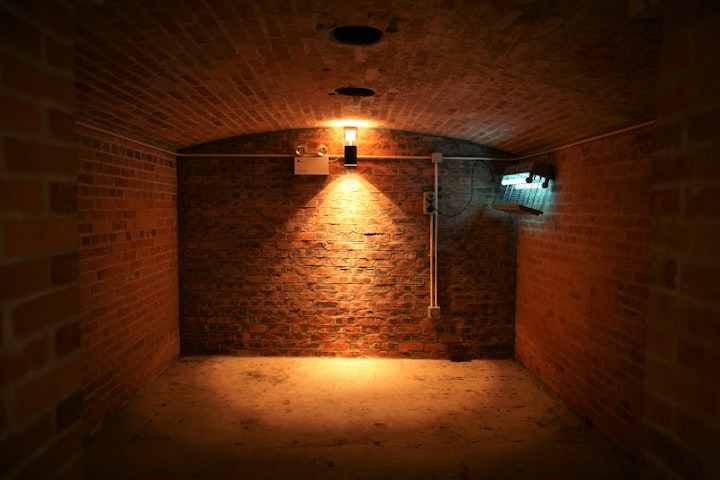The Revenant
Character Analysis And Film Review

The Revenant was released to theaters on December 25, 2015. Through the territory of the Dakotas in 1823 a group of frontiersmen are forced to flee with their fur trade after an attack on their camp site. The journey takes a setback when one man named Hugh Glass is brutally mauled by a grizzly bear and left too injured to take care of himself. Soon, his caretakers decide to leave him for dead upon fear that they will be attacked and killed themselves. This is where the title comes in: “as if back from the dead to seek revenge.” In the role that earned him his Oscar win, Leonardo DiCaprio shines as Hugh Glass as he literally pulls himself out of the hole he was in and pushes himself through snow covered woods and freezing temperatures all while injured. When portraying a historical figure, it is important to be authentic. DiCaprio was so committed to the role he actually ate raw meat on camera. Upon recent viewing I noticed how much DiCaprio acted through his eyes. In times when Glass was not speaking to anyone every emotion he felt was seen, whether this was as reaction to the present or having a memory, it was all in the eyes.
Venom fans will hardly recognize Tom Hardy as he plays the arrogant, greedy, violent, and antagonistic John Fitzgerald. He clearly wants his fair share of the trade and is willing to walk over anyone and anything to get it. As he states in the beginning, the fur trade is his life and nothing else matters to him. He is demanding of attention and comes off as self-centered, but the sad story is, he has trauma. Since a scalping left him literally scarred, he refused to trust anyone of Native American descendant leading him to be bigot and racist to them, especially Hawk.
Having just come off his role in The Maze Runner as the tough Glader bully, Gally, Will Poulter does a complete 180 and shows a more innocent side portraying the kind, resourceful, hardworking, yet naïve teenage Jim Bridger. As the youngest frontiersmen, save Hawk, Bridger tries to prove himself to the others. He doesn’t hesitate to care for Glass after the bear attack showing compassion and friendship. Sadly, he is left victim to Fitzgerald’s toxic masculinity. He is clearly a pacifist and tries to avoid violence whenever he can. Fitzgerald sees this as form of weakness. Will Poulter has become one of my favorite actors because he gives 100% to his roles and focuses on the motivation of any of his characters in addition to the action. Every time he appeared onscreen, I wanted to run up and hug him. He and Hardy made for a memorable duo. Fitzgerald took Bridger under his arm but instead of showing companionship he took advantage of his innocence to manipulate him into leaving Glass and, knowing he has no interest in shooting someone, he turns a gun on him with a minor threat. Fitzgerald convinces Bridger that listening to and being more like him is his best chance at survival simply stating, “you ain’t a man yet.”
Another noteworthy performance is Forrest Goodluck as Hugh Glass’s son, Hawk. Similar to Bridger, Hawk wants to prove he can be just as good of a hunter as the other men in the party but sadly he isn’t treated the same. Since he is the son of a Pawnee woman and a white man Hawk looses certain privileges and receives disrespect from Fitzgerald simply because of “the color of your face” and his only advice is to “be invisible.” However, his stubborn nature will not allow it. This leads him to stand of for himself, his father, and other Pawnee people even if it gets physical. I wish we could have seen more scenes between him and Bridger because they would have made great friends.
One noteworthy performance that deserves more recognition is Domhill Gleeson as Captain Andrew Henry. Being a boss is not an easy task. You have to put up with dissatisfaction and complaints from the people you employ but you also have to listen to them. Since Glass becomes injured Henry takes on the role as leader with a chip on his shoulder and a bit of an iron fist. He cares about the health and safety of the hunting party but won’t hesitate to be firm and honest with them, clearly putting up with Fitzgerald’s complaints. You may not always get along with someone you work with, but you do for the sake of your job. Henry, like others, is aware about the Civil War and he understands the men must support, not only themselves, but their families as well.
At the time, fur trade was the most common use of bargaining and many necessities were in short supply. Alejandro Gonzalez Inarritu directed a film that was hard to watch but riveting and driven. Even though the story took place in the USA the filming was done in Canada in the midst of the frigid climate, not even the beards most of the actors grew could keep their cheeks from reddening. In addition to cold, their physical strength and mental stability was tested. I could only imagine how tired they must’ve been. They pushed on trying to cross a running river and later hike up snow- and ice-covered hills. One camera trick I noticed was the extreme close ups. Whenever someone had a dramatic moment the camera would be EXTREMELY close to their faces. I took this technique as being claustrophobic with your own mind. Pay close attention to the canteen with a swirl on it. Trust me. It was important for the actors represent their historical characters, so a dialect coach and other locals gave them lessons to perfect their 1800s Virginian accents.
This movie has mostly men roles, but it didn’t shy away from other important women roles. Grace Dove had a short appearance as Hugh Glass’s late wife. You don’t need to hear her speak much to know she loved her family very much and continued to care for them until her death. Remember the attack I mentioned? A war party of Arikara were searching for the Chief’s daughter, Powaqa. For most of the film that is all we know about her, but she proves a great deal in the climax without getting into spoilers.
I highly recommend this film because it shows because it shows persistence, hope, and the will to survive. I loved the authentication showing things like language barrier. English, French, and a Native American language called Arikara spoken by the tribe, Caddoan were represented. I want to take a moment and apologize for my amateur use. Subtitles were used in some scenes. Since I learned Latin in high school, I was shown how fun it is to be more than one language, but it also showed me how language and other forms of communication have evolved. People like Glass and the Chief spoke and native language and another’s showing their respect in others and ability to communicate. Fair warnings since the film is rated R there are scenes of rape, mutilation, nudity, violence, gore, and of course the nail-biting bear attack. The CGI didn’t make it any less gruesome. Also, some areas are historically inaccurate as well as accurate and if you would like to read about it go ahead but if you are up for watching suspension or taking a walk through a powerful story, I suggest you watch The Revenant.





Comments
There are no comments for this story
Be the first to respond and start the conversation.